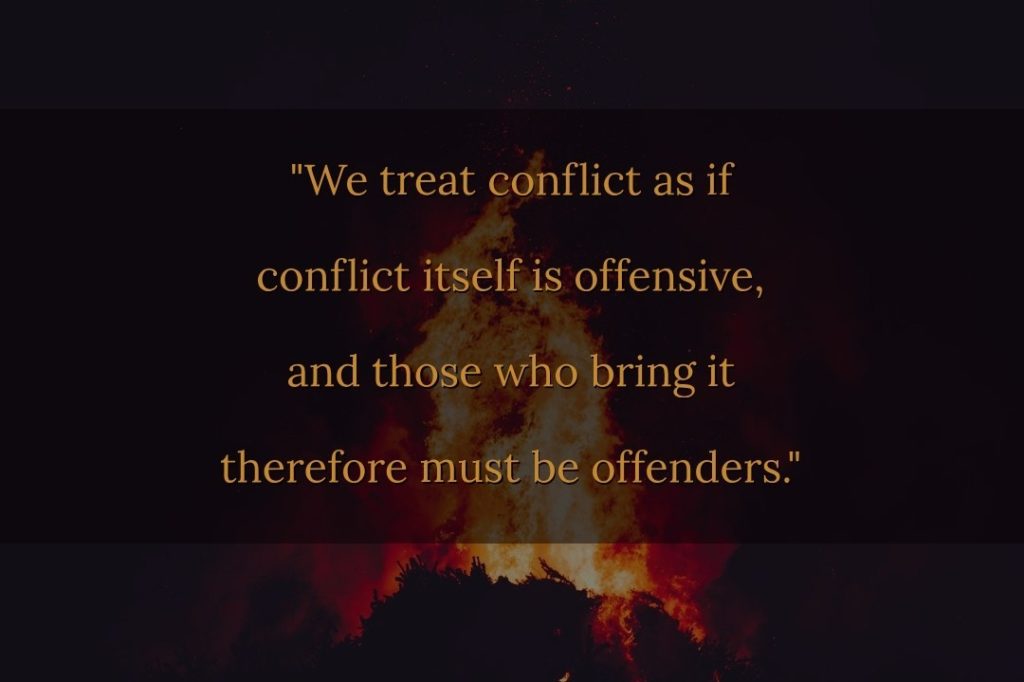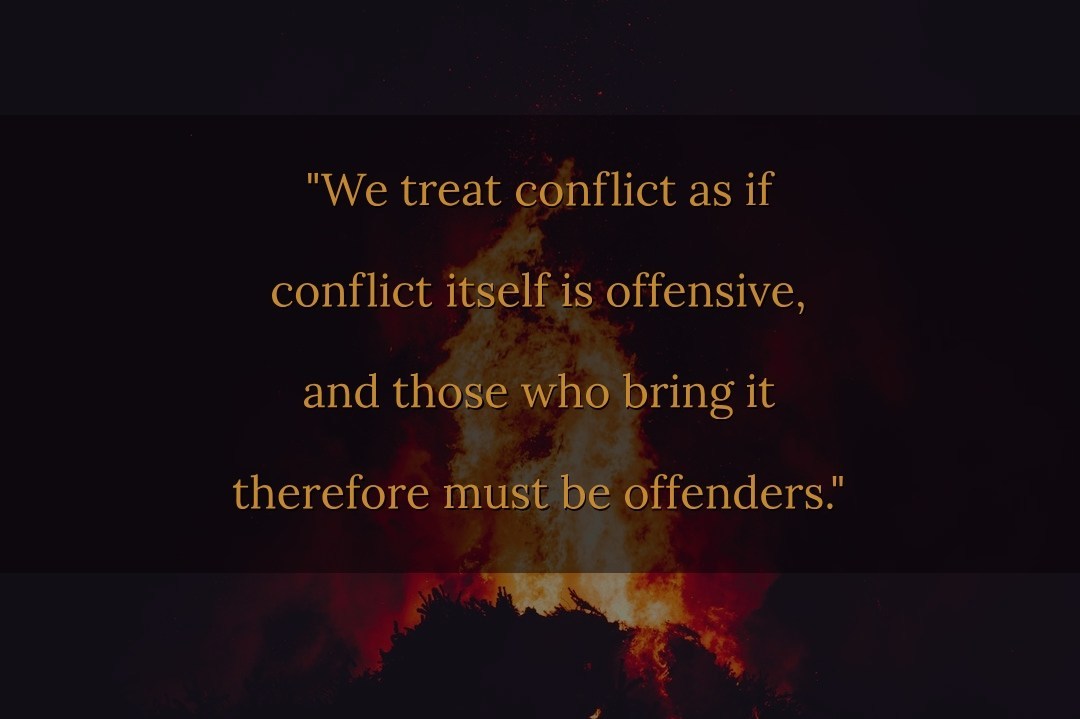
Fahrenheit 451 is a classic novel by Ray Bradbury. Many of you have read it in high school at some point, and since it’s both a classic piece of literature and an entertaining and engaging story, it’s often a favorite of students who are forced to read a whole bunch of books they don’t enjoy.
When people talk about Fahrenheit 451, they typically think of censorship. The protagonist, Montag, burns books for a living and finds great pleasure in doing it (at least, to start). And yet censorship is only a vehicle leading to the real theme of the book; it’s a means to and end, and even Bradbury wanted to make that clear. He’s often cited to have said in an interview that it’s about “people being turned into morons by TV.”
“[In game shows,] they tell you when Napoleon was born, but not who he was.”
He doesn’t actually mean TV as an evil instrument here — more about the “bombardment of factoids,” as he says later. In fact, the book is not an anti-television or anti-computer game, or some prophetic anti-cell phone novel. It’s certainly not a mundane political statement against technology.
The argument is made very clear by a character in his own book:
Note: “Parlor families” are a sort of multi-screened entertainment system the protagonist’s wife is obsessed with — mindless entertainment with no story, no meaning, no ‘why’, only nameless faces with obscure events happening to entertain. It would have been easy to make the Parlor families the bad guy, but Bradbury made sure to keep the focus in the right place.
“It’s not books you need, it’s some of the things that once were in books. The same things could be in the`parlour families’ today. The same infinite detail and awareness could be projected through the radios and televisors, but are not. No, no, it’s not books at all you’re looking for! Take it where you can find it, in old phonograph records, old motion pictures, and in old friends; look for it in nature and look for it in yourself. Books were only one type of receptacle where we stored a lot of things we were afraid we might forget. There is nothing magical in them at all. The magic is only in what books say, how they stitched the patches of the universe together into one garment for us.”
The same things could be held inside a TV, inside a video game with a storyline that engages the intellect, or by word-of-mouth, like oral tradition of old.
Fahrenheit 451 is about how our culture increasingly uses entertainment and distraction to keep us from being “bothered” about this sort of thinking.
At one point, Montag is confused and fed up with the subjugation through mindless entertainment, and the enforcement of zero stimulation of the soul — he bugs his wife about it over and over.
“Let me alone,” said Mildred. “I didn’t do anything.”
“Let you alone! That’s all very well, but how can I leave myself alone? We need not to be let alone. We need to be really bothered once in a while. How long is it since you were really bothered? About something important, about something real?”
How does this relate to us now? This book is from the 50s — aren’t we bothered enough these days? Don’t we look on our phones and see a world completely immersed in bickering and argument? Aren’t we bothered all the time?
No. We liken ourselves to Montag, bothered and powerless, and yet when we see or hear conflict we more often act like Mildred, his wife. She comes into contact with conflict and cries out, scraping away or fighting it like it’s the devil incarnate.
We are in constant conflict with ideas, but instead of letting them bother us — instead of sitting down and mulling them over, taking them seriously, and digesting them over the course of a few quiet hours — we fight back, like these ideas are the enemy on a battlefield. We treat conflict as if conflict itself is offensive, and those who bring it therefore must be offenders. This is a prevalent idea in all political ideologies, theologies, and philosophical schools of thought in modern life.
We must allow ourselves to be bothered. To be okay with conflict.
When was the last time you allowed yourself to be internally challenged by an idea? When was the last time you took something like socialism, capitalism, abortion, or illegal immigrants and argued about it in your own head?
“Well, of course I’ve thought about it. That’s why I’m so fervently against/for it!”
If the internet is any indicator, our knee-jerk reaction is to fight back, not to think it over. To “stand up” for what we believe in (of course without much definitive action) and argue endlessly as if the other opinion were an affront to truth itself. As if every hill was worth dying on, instead of expanding our intellect, listening, learning, and bothering ourselves about it all.
As if arguing (our version of Bradbury’s entertainment) was a replacement for having to come to actual, actionable conclusions to our debates.
The short-term consequences of this are scary. Politics is becoming increasingly divisive, making compromise and definitive progress seem impossible. We are alienating those who subscribe to other beliefs, because any conflicting belief is apparently unforgivable. They will allegedly ruin everything.
But what are the long-term consequences? In my mind, those are much scarier.
Conflict is bad; it’s the overcoming part that’s good. When human beings engage in any conflict, the goal is generally to resolve it – making the conflict itself worth the trouble. In a relationship, you have to endure some conflict in order to fix problems, clear up misunderstandings, and grow. Many people have suffered unimaginable conflict in order to grant us the freedoms we enjoy today. Many jobs involve solving conflicts and getting paid to do so daily.
But as we tread forward into the future, we’re lacking in the second half of those sentences. We’re diving into conflict and coming out with no definitive resolution. We argue and argue and argue like it’s a form of entertainment, and we wind up with very little to show for it. So if there’s no positive or productive result to engaging in conflict, then what’s the point?
That’s what young people are seeing today. They’re seeing folks around the world argue and bicker with no results come of it.
And the consequences of that are already apparent. We have waves of younger generations avoiding conflict at all costs; we have scores of people who just want to keep their heads down and pay their bills without really living much at all. And why would they? The way they see us resolve conflict seems completely fruitless, so therefore conflict must be something to be avoided altogether.
In the college world, I saw this with students and any kind of physical or threatening confrontation, or arguments that didn’t involve recycled soundbites. “That’s offensive” could mean that someone is actually being mean-spirited, but it also is used as an easy-out of any conversation involving conflict. Words like “racist” or “sexist” are often used appropriately, but they’re also often used as a way to shut down discussion at all. Bailing on conflict could almost be considered an art form — some people are really good at it.
In the military world, I saw this with relationship troubles, or “drama” with friends. Phrases like “Man, I don’t wanna deal with that shit,” can be translated to, “I’m afraid of confronting those problems and would rather just hide in a corner, giving them the silent treatment like a second grader.” Military men and women tend to thrive in physical conflict, but often struggle when it comes to emotional or interpersonal conflict.
Ray Bradbury wrote about a dystopian world where the people elected entertainment over any kind of conflict ever. Our reality today is a bit different, but in the same genre – just switch out entertainment for petty debate and vitriol that leads to no resolution. Useless argument, and then blaming the opposition for not listening. Our “entertainment” is less sex and rock n’ roll, and more pressing your tongue on that tooth that hurts – you should stop, but you keep doing it anyway.
And the result is a world where conflict is avoided at all costs. That’s scary when you realize that conflict will knock on your door no matter what, you’ll just be unequipped to deal with it when the time comes.
Books, TV, story-oriented games, theater, and even bedtime stories can hold society back or help push it forward. Edward R. Murrow on the subject of the television: “This instrument can teach, it can illuminate; yes, and even it can inspire. But it can do so only to the extent that humans are determined to use it to those ends. Otherwise, it’s nothing but wires and lights in a box. There is a great and perhaps decisive battle to be fought against ignorance, intolerance and indifference. This weapon of television could be useful.”
For more on author Luke Ryan please see his author interview for his book “The First Marauder” available on Amazon
This post originally appeared on Thefreqmedia.com
Facebook: https://www.facebook.com/LesGingerables/

Leave a Reply